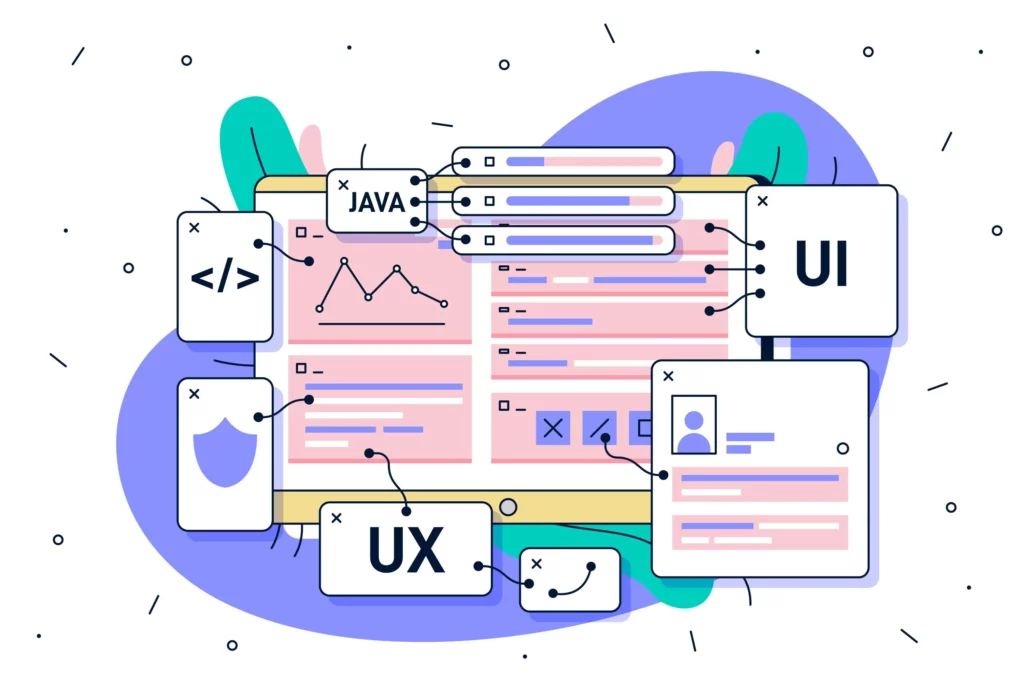In today’s digital world, website speed is crucial. Users expect instant access to information, so it’s important for a website to run smoothly and quickly. In addition, website speed also has an impact on search engine rankings, as faster websites often rank higher. In this article, we’ll explore what affects website speed and how we can optimize it.
Understanding website speed
Website speed refers to the time it takes for a website to load in a visitor's browser. Slow websites cause poorer user experience and increase the bounce rate. There are several metrics for measuring website speed, the most common of which are page load time, first contentful paint time, and total page load time. In addition, there are standard guidelines and recommendations for website speed that should be followed when developing and maintaining websites.
Factors that affect website speed
There are several key factors that affect website speed. The first is image and graphic optimization. The size of images and graphics can greatly affect loading speed. Therefore, it is important to optimize images and graphics and reduce their size without losing quality. The second factor is file compression and code minification. By compressing files and minifying code, we can reduce the size of downloaded files, which allows for faster loading. The use of caches and high-density content is the third factor that affects speed. Caches allow certain data to be stored on the user's device, which allows for faster access to already downloaded data. Choosing the right web host is also important. A quality web host with fast servers can significantly improve the speed of a website. Plugins and scripts used on a website can also affect speed. Too many plugins and added scripts can slow down the loading of a website, so it is important to keep only those that we really need.
Website optimization for speed
There are several ways to optimize website speed. One of them is mobile optimization. With the increasing number of users accessing the internet via mobile devices, it is crucial to ensure that a website is optimized for mobile use and displays correctly on different screens. Machine learning and content optimization allow websites to adapt to user behavior and interests, which helps to display relevant information faster. Caching and server optimization are important steps in optimizing website speed. Caching allows you to store static elements of a website on the visitor's side or on servers, which speeds up the display. Server optimization focuses on improving server performance and setting up the server configuration accordingly. Using a CDN (Content Delivery Network) is another effective method of optimizing website speed. A CDN allows content to be distributed across different servers around the world, which speeds up the accessibility of a website for visitors from different geographical locations. Due to these improvements, occasional online store renovation or website redesign so important.
Advanced tips for improving website speed
In addition to basic optimization practices, there are also advanced tips that can help you improve your website speed even further. Reducing the number of downloads, such as combining and minifying files, reduces load times. Advanced image compression, such as using new image formats and using vector graphics, reduces the size of images without losing quality. Compressing and optimizing code, and using advanced optimization techniques, such as lazy loading, also speed up loading times. Optimizing your server and network infrastructure can also significantly improve website speed.
What's new and the future of website speed

The world of web development is constantly changing, so it's important to stay up to date with new trends and technologies that impact website speed. Advanced technologies like HTTP/3 promise even faster loading times and improved website security. Online store renovation focuses on optimizing website speed using advanced techniques such as advanced image compression, code optimization, and the use of more powerful servers. In the future, we can expect innovations such as advanced caching algorithms, personalization using machine learning, and optimization automation to improve website speed and user experience.
Conclusion
Website speed has a crucial impact on the user experience and success of a website. In this article, we have reviewed the key factors that affect website speed and presented a number of tips and strategies for optimizing it. We hope that this knowledge and information will help you in online store renovations or website and improve the speed of your website and provide excellent user experience for your visitors. Remember that website speed optimization is an ongoing process that requires regular monitoring, adaptation, and consideration of new trends and technologies to maintain a competitive edge online.

